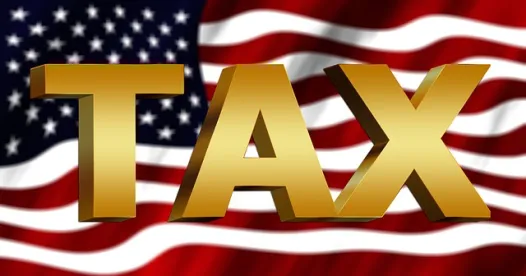On November 2, 2017, Republicans in the U.S. House of Representatives unveiled their tax reform bill (the “Bill”), entitled the “Tax Cuts and Jobs Act.” The Bill proposes significant changes to the current U.S. federal income tax regime affecting businesses and individuals, several of which we summarized in previous updates.1 This update focuses on the key provisions in the Bill (as amended by House Ways and Means Chair Kevin Brady) that would impact not-for-profit, tax-exempt organizations. The proposed changes would be generally effective for tax years beginning after 2017.
1. Changes to the Excise Tax Regime
Simplified 1.4% Private Foundation Excise Tax on Investment Income
Private foundations are subject to a 2% excise tax on their net investment income, which in certain circumstances may be reduced to 1%. The Bill would repeal this provision and replace it with a single 1.4% excise tax on net investment income.
1.4% Excise Tax on Investment Income of Private Colleges and Universities
Under current law, public charities are not subject to an excise tax on their net investment income. The Bill would impose a 1.4% excise tax on the net investment income of private colleges and universities that have more than 500 students and assets (excluding assets used directly for educational purposes) of at least $250,000 per full-time student. For purposes of this proposed rule, the assets and net investment income of organizations related to private colleges and universities would be treated as the assets and net investment income of those colleges and universities. The stated rationale is that “[e]ndowments at many private colleges are large enough that parity requires that they be placed on equal footing with private foundations when it comes to paying a tax on net-investment income.”
Exception from Private Foundation Excess Business Holding Tax
Private foundations are generally subject to a 10% excise tax on the value of their interests in a for-profit business that exceeds 20%. Under the Bill, the excise tax would not apply if: (1) the private foundation owns 100% of the voting stock of the for-profit business at all times during the taxable year, and did not purchase its interest in the for-profit business; (2) the for-profit business distributes all of its net operating income for any given tax year to the private foundation within 120 days of the close of the tax year; and (3) directors and officers of the for-profit business are not substantial contributors nor make up a majority of the private foundation’s board of directors.
Operational Requirement for Art Museums to Claim Exemption from Certain Excise Tax
Under current law, a private foundation is subject to a 30% excise tax for failing to satisfy certain minimum income distribution requirements, but can claim an exemption from the tax on the basis that it is an operating foundation. Under the Bill, in order to qualify for the exemption, an art museum must be open to the public for at least 1,000 hours during the tax year.
2. Compensation-related Changes
Excise Tax on Tax-Exempt Organization Executive Compensation
The Bill would impose a 20% excise tax on charitable and religious organizations as well as public utilities and municipalities, tax exempt under either section 501(a) or section 115(1) of the Code, on any compensation in excess of $1 million paid to any of the organization’s five highest-paid employees (a “covered person”). The tax would be paid by the exempt organization and would apply to all remuneration of a covered person (including non-cash benefits and certain severance payments) except for payments to tax-qualified retirement plans and amounts that are excludible from the executive’s gross income. Once an employee qualifies as a covered person, the excise tax would apply to compensation in excess of $1 million paid to the person by the organization in any future year. The provision attempts to provide parity between the limitation on the deductibility of executive compensation by taxable publicly traded corporations and the treatment of executive compensation paid by tax-exempt organizations. Moreover, in its summary of the Bill, the Ways and Means Committee Majority Tax Staff questions whether excessive executive compensation paid by exempt organizations diverts resources from exempt purposes and states that “[g]iven that exemption from Federal income tax constitutes a significant benefit conferred upon tax-exempt organizations, the case for discouraging excess compensation paid out to such organizations’ executives may be even stronger than it is for publicly traded companies.”
3. Unrelated Business Income Tax
Fringe Benefit Expenses as Unrelated Business Taxable Income
The Bill would subject tax-exempt organizations to unrelated business income tax (“UBIT”) on the value of certain employee fringe benefits, including transportation, parking facilities and on-premises athletic facilities. As with the provision related to executive compensation discussed above, this provision attempts to provide parity between tax-exempt organizations and publicly traded corporations.
Scope of Unrelated Business Income Tax Rules
Under current law, government-sponsored entities exempt from tax under section 115(1) of the Code are generally also exempt from the UBIT rules. It is, however, unclear whether certain state and local entities (such as state pension plans) that are exempt from tax under both section 115(1) and section 501(a) of the Code are subject to the UBIT rules. The Bill would clarify that all entities exempt from tax under section 501(a) are subject to the UBIT rules, notwithstanding their exemption under any other provision of the Code.
Restriction on Exclusion of Research Income
The Bill would modify current law to provide that research income may be excluded from UBIT only if the results of fundamental research are freely made available to the general public.
4. Changes to Tax-Exempt Bonds
Tax-exempt “private activity” bonds are often used by nonprofit hospitals, nursing homes, and senior housing providers to finance capital projects. “Advance refunding” bonds are also used to refinance debt at lower rates. The Bill would repeal the tax exemption for interest paid on private activity bonds and advance refundings. Moreover, the Bill would repeal the rules relating to, and authority to issue, tax credit bonds. Finally, tax-exempt bonds could not be used to finance professional sports stadiums.
5. Other Changes
Charitable Contributions
Under current law, a taxpayer generally may claim a charitable contribution deduction of up to 50% of his or her adjusted gross income (“AGI”) for cash contributed to public charities, private operating foundations, and certain non-operating foundations.
The Bill would increase the AGI limitation on these contributions from 50% to 60%. The Bill would also deny a charitable deduction for a donation that secures the right to purchase tickets for seating at an athletic event in a stadium at an educational institution.
Finally, the Bill would repeal the exception to the written acknowledgement requirement for contributions of $250 or more when the donee organization files the required return.
Standard Deduction and Estate Tax
Current law allows individual taxpayers to reduce their AGI by either taking a standard deduction or electing to claim itemized deductions. Although the Bill retains the charitable contribution itemized deduction, the Bill would approximately double the standard deduction, which is expected to reduce the number of taxpayers who itemize their deductions. The Bill would also immediately double the estate tax exemption and entirely repeal the estate tax for tax years beginning after 2023. The expansion of the standard deduction and phase out of the estate tax could have a significant impact on charitable giving.
Section 501(c)(3) Organizations Permitted to Make Political Statements
The Bill would modify the “Johnson Amendment,” which prohibits all section 501(c)(3) organizations from participating or intervening in political campaigns, and would allow them to make political statements in the ordinary course of the organization’s regular and customary exempt activities if the incremental expenses incurred are de minimis. (Effective for tax years beginning after December 31, 2018 and sunset for tax years beginning after December 31, 2023.)
Stay Tuned
It is uncertain which if any of the provisions of the Bill affecting tax-exempt organizations will ultimately survive and become law. Indeed, the enacted provisions may differ significantly from the Bill described here and in our earlier memos.
1 See Cadwalader Clients & Friends Memo, “Eleven Business Provisions to Watch in the House Tax Reform Bill,” available at http://www.cadwalader.com/resources/clients-friends-memos/eleven-business-provisions-to-watch-in-the-house-tax-reform-bill; see also “Effects of House Tax Reform Bill on Securitizations and Funds,” available at http://www.cadwalader.com/resources/clients-friends-memos/effects-of-house-tax-reform-bill-on-securitizations-and-funds.




 />i
/>i

